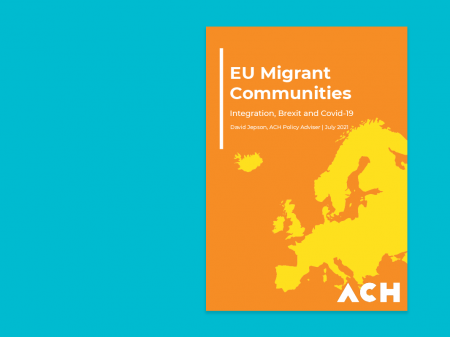
Counteracting skills shortages through investing in refugees
The refugee crisis is the defining issue of our time, with the highest number of displaced people globally since World War Two. Alongside this, factors including Brexit, major infrastructure projects and an ageing population have created a skills shortage challenge in many sectors of the UK economy, which threatens to hold back our economic growth. We believe that harnessing the skills of our refugee population can help counteract this.
A pressing issue
With unprecedented numbers of refugees entering the UK, further austerity measures, and the Brexit vote, the past three years have seen a great deal of upheaval. Meanwhile, skills gaps are an increasing concern across the UK labour market, as employers report that they are not reaching enough skilled candidates.
A 2017 report by the CBI showed that three quarters of businesses expect to increase the number of high-skilled roles over the coming years, but 61% fear that there will be a lack of sufficiently skilled people to fill them. Locally, according to Skills West’s 2017 Business Skills and Training Survey, 52% of businesses in the West of England found it hard to recruit and 68.5% of them blamed this on having a lack of applicants with the relevant skills and qualifications.
In fact, in the run up to Brexit, more and more skills shortages are coming to light every week.
The Brexit opportunity
However, there is an untapped talent pool of people, it’s increasing and it’s one employers are largely ignoring. The refugee, non-EU labour force can help to fill many of these skills gaps. These estimated ~120,000 individuals, have skills that can be re-purposed for the UK labour market.
Research suggests that refugees tend to be motivated to integrate quickly, both by improving their English and gaining employment. Migrant entrepreneurs also bring with them extensive international networks and language abilities. With existing skills and experience, and the motivation to learn and succeed, it is clear that refugees represent significant potential assets to businesses. In the context of Brexit, the need to engage with them is more pressing than ever if UK businesses are to maintain a global advantage.
But with such a huge opportunity available, how can we make the most of it, and ensure these skilled individuals meet their full potential?
Maximising refugee potential through #rethinkingrefugee
ACH was established in 2008 as a social enterprise specialising in integrating refugees through accommodation, support and community-based training. In autumn 2017 we began working directly with employers to get refugees into career pathways.
Inclusivity within local labour markets can only be ensured by unlocking each individual’s skills and talents. To do this, our #rethinkingrefugee programme uses effective assessment to determine the transformation required, and tailors a programme specific to each individual.
This provides each refugee with a clear pathway and action plan to get onto their chosen career path. It also gives employers visibility of candidate competencies, and the confidence they are able to function productively within the role.
As a growth, skills and productivity enabler for the employer, #rethinkingrefugee provides a solution for both refugees and businesses. In the face of our skills shortage challenge, investing in the skills, network and enterprise of refugees is to everyone’s advantage.
Read our blog on why our monolingualism will hurt British Business Post-Brexit https://www.ach.org.uk/news-and-features/why-our-monolingualism-will-hurt-british-business-post-brexit


